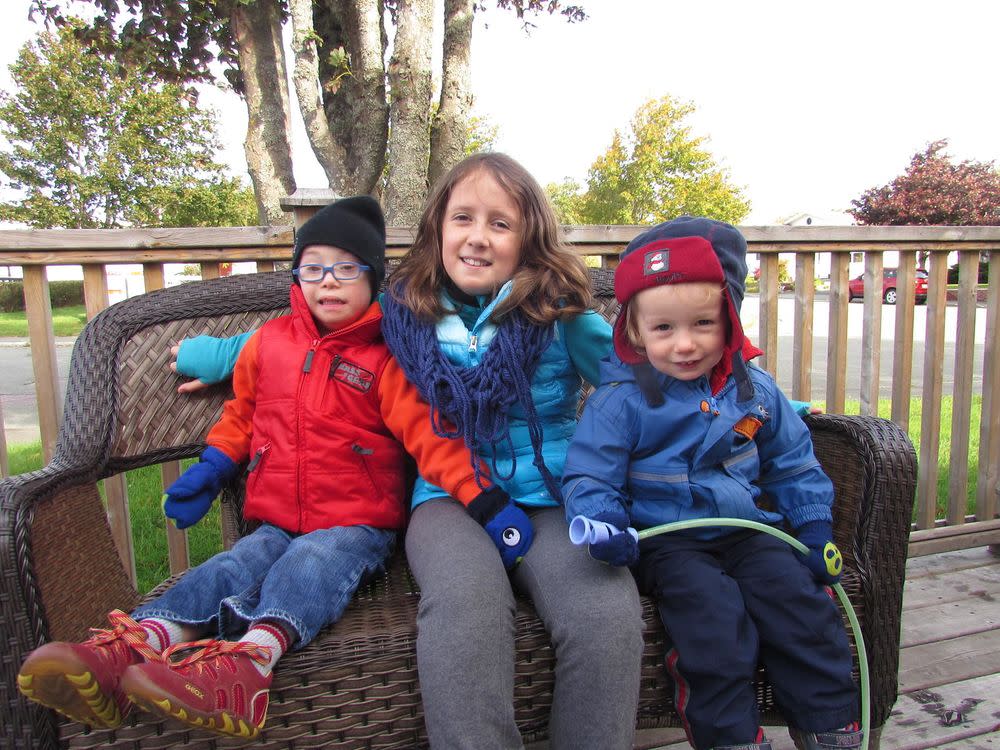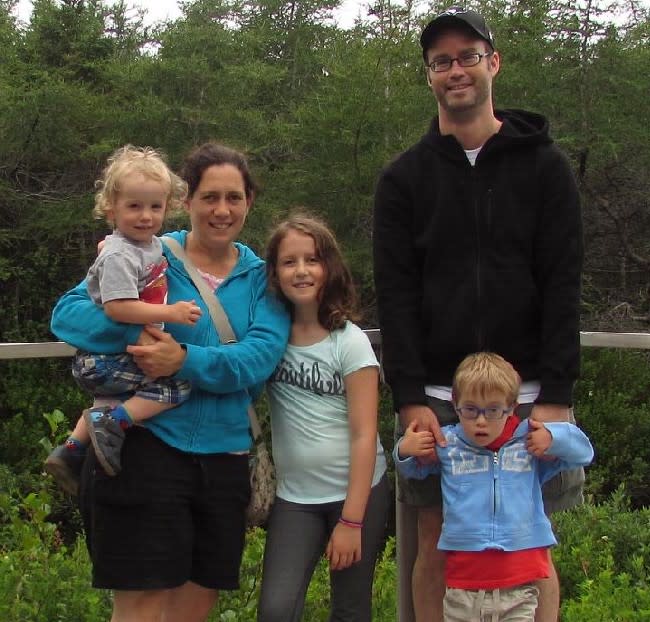Why I Chose to Have a Child With Down Syndrome

In May 2009, my wife, Jan, gave birth to our son Aaron, who has Down syndrome. The saintly parents who have gone before us have laid the groundwork for the joyous occasion of our son’s birth. They made it easier not only to bring our child home from the hospital—today institutionalizing a child with Down syndrome is virtually unheard of—but also to accept and envision becoming a parent of a child with Down syndrome at an earlier stage of pregnancy, when Jan and I were given a prenatal diagnosis that Aaron had this condition.
This news was difficult to hear and caused a fair amount of grief for both Jan and me. I was steeped in the philosophy of disability through my studies in bioethics. I had written a doctoral dissertation examining ethical issues involving infants with disabilities. I had heard the stories about parenting children with Down syndrome and read the data about the contributions that people with disabilities make to their families and their communities. These stories and this information made me believe it was possible not only to bring a child with Down syndrome into the world but also for our family to flourish with such a child—for Aaron’s siblings to benefit from his presence in our lives.
At seven, Aaron is a happy little kid who enjoys playing ball hockey, watching YouTube videos, playing with his train set, and learning how to read. Aaron is especially devoted to his older sister, Elizabeth, and his younger brother, Ty. Aaron is very much like most other children who do not have a disability. He is good at some things and not so good at others. Our lives are better with him here with us. Our feelings toward Aaron are very similar to feelings that parents and siblings have to any child who does not have a disability. I know this because I feel the same way about Elizabeth and Ty.
My wife, Jan, and I decided to have Aaron for many different reasons. Jan felt a powerful bond with him while she was pregnant, and by the time he was prenatally diagnosed with Down syndrome, she already regarded him as our son. We also thought that we could handle the challenge. We viewed it to be an expectation of parenthood that we should accept our children for who they are, and not place conditions on our acceptance of them. We thought that if we were to be selective of our children, we would not be living up to what is required of parents. We saw a welcoming attitude toward our children as a virtue.
Aaron’s birth was a celebration and an affirmation of our values. A neonatologist had warned us that infants with Down syndrome sometimes do not breathe on their own immediately after birth and sometimes require temporary assistance with breathing. But when Aaron was born, we were so excited because he screamed and breathed on his own without any problems. He has been a joy to parent every day since then.
RELATED: Caring for a Baby With Down Syndrome

Judging from the high rates of selective termination for Down syndrome, prospective parents still have massive reluctance to welcome children with this condition into their families. We have seen from parenting memoirs and from the experience of deinstitutionalization that, once these children are born, they are welcomed into the lives of their families. But when the decision is made prior to birth, a welcoming attitude is less common. Before birth, in fact, such an attitude is not the norm—or at least prospective parents tend to let other values and perceptions of people with Down syndrome have priority over a welcoming attitude.
Parents of children with Down syndrome recognize what they add to our lives within and beyond the family. But a fully welcoming attitude would involve a greater acceptance of people with Down syndrome in intimate spheres of human relationships. To make this change, we need a greater level of acceptance and welcome within public attitudes toward people with Down syndrome. The common tendency to seek out fetuses with Down syndrome prenatally and terminate such—this norm of acceptance will not prevail as long as people feel an urgent need to detect and terminate pregnancies affected by Down syndrome.
It would be easy to say that choosing Aaron was a choice that we made, but that other people in the same situation might feel differently or have other values. As it stands, this position is fully justified. People should be free to make momentous decisions in line with what they value most. But, still, I would ask prospective parents: just what are your values? Have you examined them carefully? Maybe it is, in fact, consistent with your values to welcome a child with Down syndrome into your family.

Adapted from Choosing Down Syndrome: Ethics and New Prenatal Testing Techniques by Chris Kaposy, © 2018 by The MIT Press. Reprinted by arrangement with the MIT Press, Cambridge, MA. www.mitpress.com.
